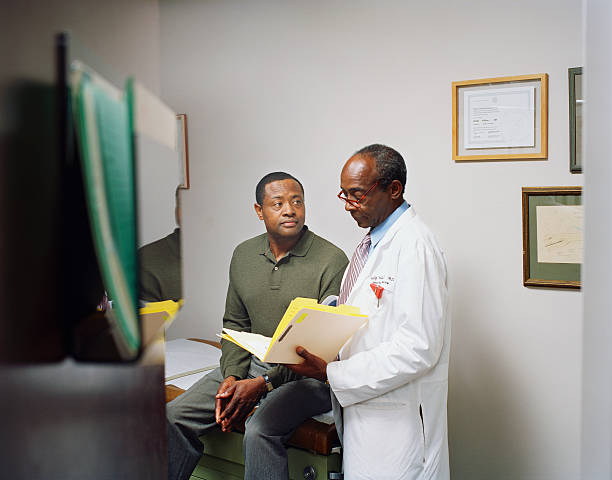
New research has suggested that many Black men may not visit their doctor or partake in a health screening because they find the interaction stressful and don’t feel physicians give them enough useful information on how to make recommended lifestyle changes.
The findings from a recent study stem from a series of focus groups with Black men regarding their physicians. The results show doctors are coming up short when it comes to advising patients on how to make healthy changes in behavior — such as eating better, exercising more or weight loss — without sacrificing time with family.
When Black men do go to the doctor, it’s usually because they have to get test results, or because a family member forced them to pay a visit, research shows. Even then, the men reported not liking the tone that doctors take with them.
With those interesting findings, it’s hard to ignore the fact that our Black men need to take their health (specifically, screenings) seriously.
RELATED: Five Ways I Got Over Hating Going to the Doctor
Here’s a guide that can help:
Health Screening Checklist
Take this checklist to your next doctor’s appointment. Your doctor can help you develop a more tailored screening plan if needed.
These exams are for men at average risk of cancer. If you believe you may be more likely to develop cancer because of your personal or family medical history, speak with your doctor about early screening methods.
Ages 40-49
Beginning at age 40, you should speak with your doctor about the benefits and limitations of prostate screening.
If you choose to screen for prostate cancer, you should get a digital rectal exam and PSA test every year starting at age 45 to check for prostate cancer if you are Black or have a family member that had prostate cancer before the age of 65 (father, brother, son).
The average age for colorectal cancer screening begins at age 45. However, those at a higher risk, such as Black men and men with a family history of colorectal cancer should discuss whether they should start screening earlier with their doctor. A colonoscopy is recommended every 10 years while a virtual colonoscopy should be done every 5 years to check for colorectal cancer.
Ages 50-75
If you choose to get a prostate cancer screening, you should get a digital rectal exam and








